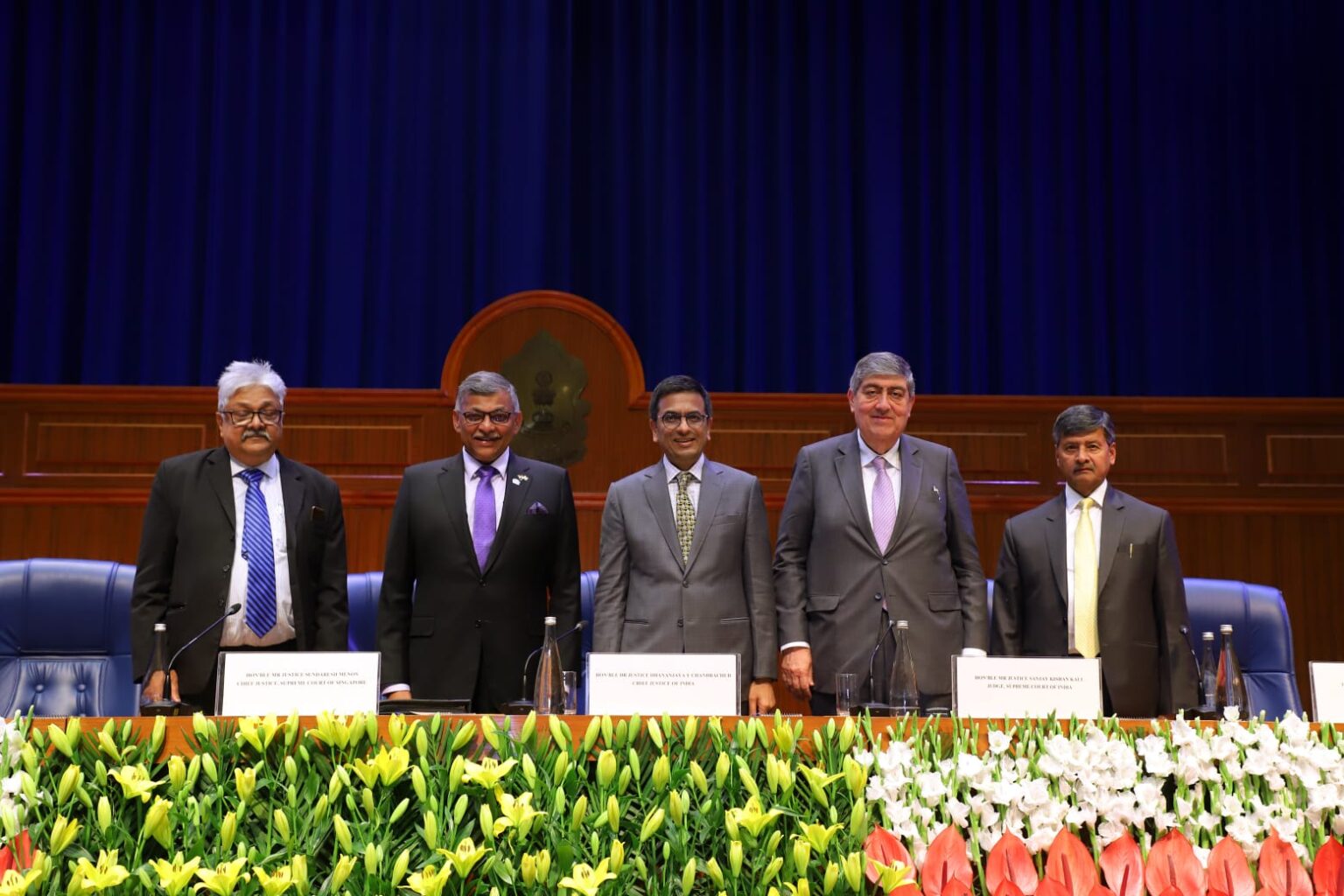New Delhi, Feb 4.
Singapore Chief Justice Sundaresh Menon on Saturday exhorted judicial systems in different jurisdictions to engage with each other more, communicate and collaborate with each other, and also make the system easier for litigants who wish to fight their legal battles on their own.
The Singapore Supreme Court conducts regular surveys to get feedback from users i.e., self-represented laypersons, to constantly improve the system, he said. Their numbers are increasing.
Make judicial system more user-centric
Besides, this category there are another 1.3 billion who have been left out of the system due to lack of access to funds, inaccessibility of courts and lack of literacy. They constitute a justice gap.
Nothing is more corrosive to the judicial system than the belief that the system is for the privileged few and is priced out for others, Menon said.
Building a user-centric court system, engaging with the public were now core functions. The courts must discharge their assistive responsibility towards self-represented laypersons, he said, by rationalising court procedures and publishing self-help guides.
Menon was delivering the first annual lecture of the Supreme Court of India on the “The Role of the Judiciary in A Changing World”. This lecture marks the 73th anniversary of the establishment of the Indian Supreme Court.
He was speaking ironically enough before a judicial system which is hostile to litigants who wish to either file or argue their own cases. Petitioners in person have it difficult in the Indian judiciary.
Since most are unaware of the complex legal processes, the bench is often heard advising them to get a lawyer. They can argue their own case only if the bench permits them to, an exception rather than the rule. They are subject to different rules.
The Supreme Court of India’s bureaucracy is also notoriously reluctant to share information, with either journalists or the public, despite recent initiatives of Chief Justice of India D.Y. Chandrachud.
Engage with the public
Judge-media interactions are few and far in between. Lawyers and staff are often openly hostile to media personnel for crowding the court-rooms.
There is widespread ignorance about the role of the media in an open court system. Reporters face more restrictions on entry into court-rooms than the pre-covid period.
Former CJI Y.K. Sabharwal made an attempt to address the media on a regular basis, CJI S.H. Kapadia issued summaries of important rulings, and the PRO office was created to meet the demands of the times, but these never took off.
Create a transnational system of justice to meet the post-covid perfect long storm
Menon also spoke of the need for legal jurisdictions to engage with each other, exchange ideas and join hands to take on what he described as the “perfect long storm” of global challenges such as stagflation, health problems, climate change, political instability and social inequalities etc being faced by judiciaries world over in the post-covid era.
These have given rise to complex problems and legal issues which will place a greater demand on the judges’ levels of competency and legitimacy to fulfil their roles and protect their institutional integrity. On issues such as climate change, even inaction on part of governments will land up in the courts, he said.
Deal with disinformation, truth decay
There will also be issues of greater technical and evidential complexity to deal with besides complexification of simple disputes. Commercial interdependence has gone up. Disaffection and polarisation will be a challenge.
Together, with truth decay, they will undermine the credibility and legitimacy of the institution unless the institutions respond to these challenges.
In an era marked by “truth decay”, which he used to describe the phenomena of devaluation of truth in societies and spread of disinformation, it is imperative for judiciaries to work consciously towards a transnational system of justice especially in the commercial world to deal with these multiple challenges and uphold rule of law.
Truth decay is seen in partisan expert views adduced in court and in lawyers concealing facts from the court. These undermine the stabilising influence of the courts in protecting rule of law.
Focus on judicial diplomacy
In a world in which the default emotion was lack of faith in public institutions, the courts must engage with the press, the public and with each other to create greater public trust and faith and counter disinformation.
This is a critical mission, if we fail, it portends a breakdown in rule or law and if we succeed, we can act as a stabilising factor that can guide societies through the tempest, he concluded.
CJI Chandrachud and Justices Sanjay Kishan, Kurien Joseph and Ajay Rastogi and a host of judges from the past and present graced the occasion. Chandrachud dubbed the Indian judiciary as a people’s court, a court which has reflected the Indian people’s struggles, a court which has through its rulings given effect to the Constitution’s transformative vision.

